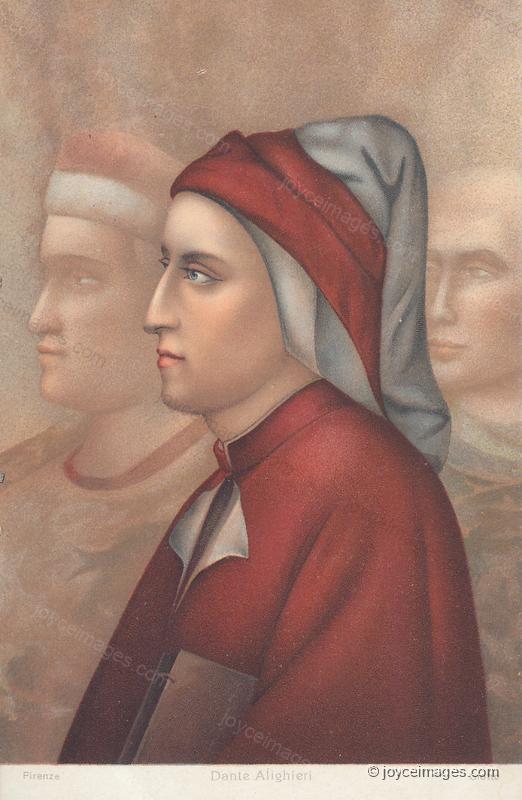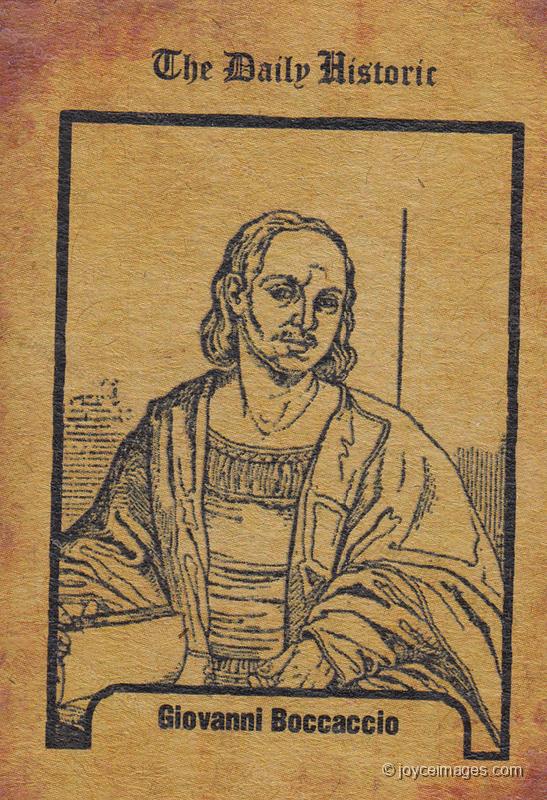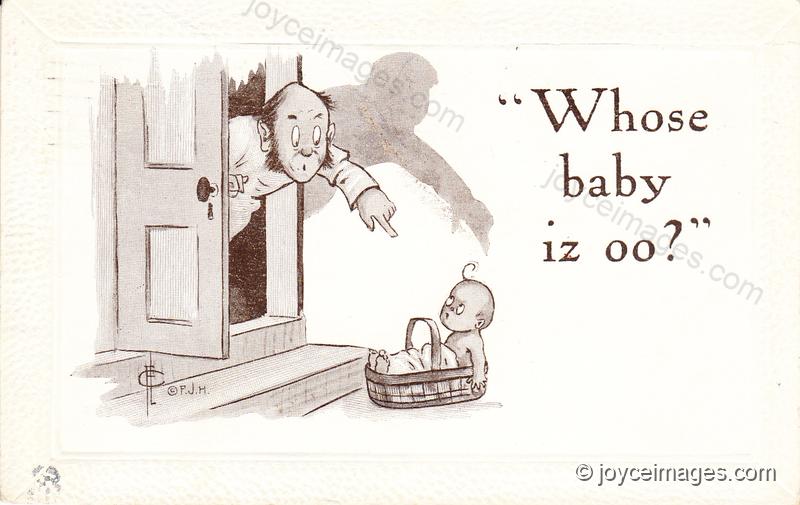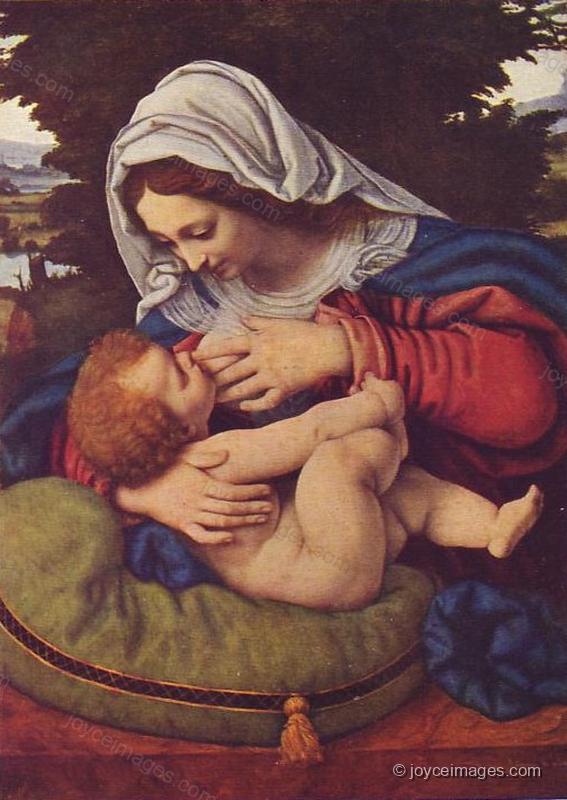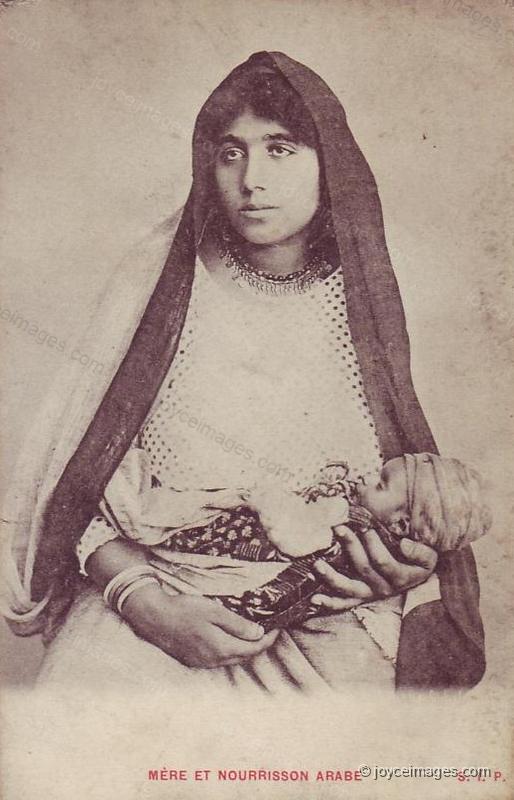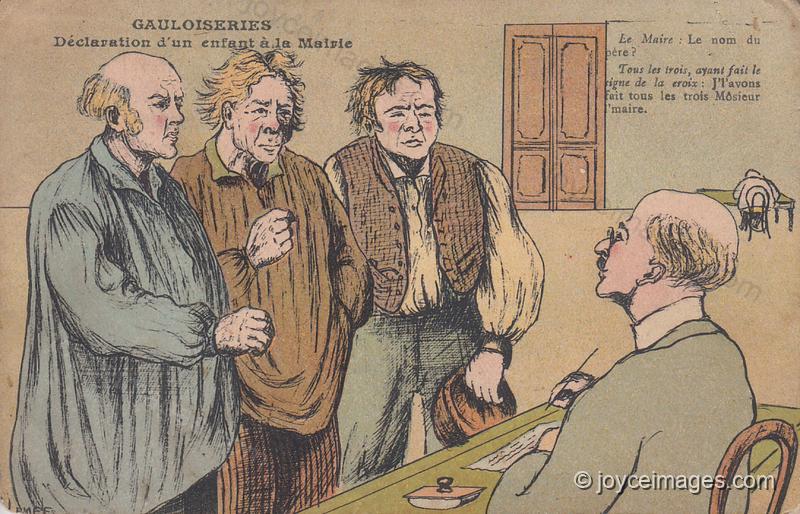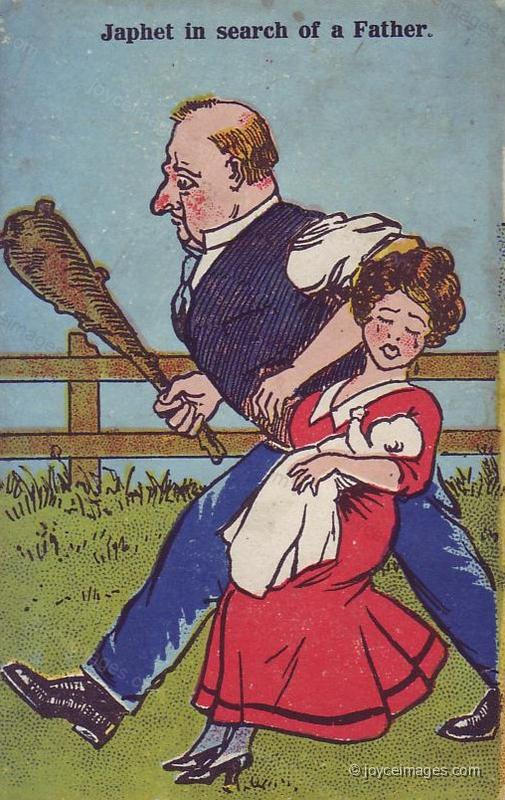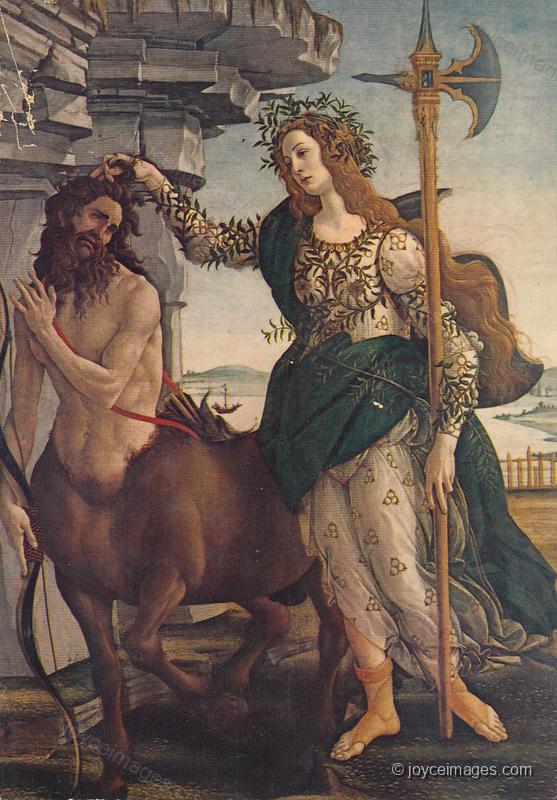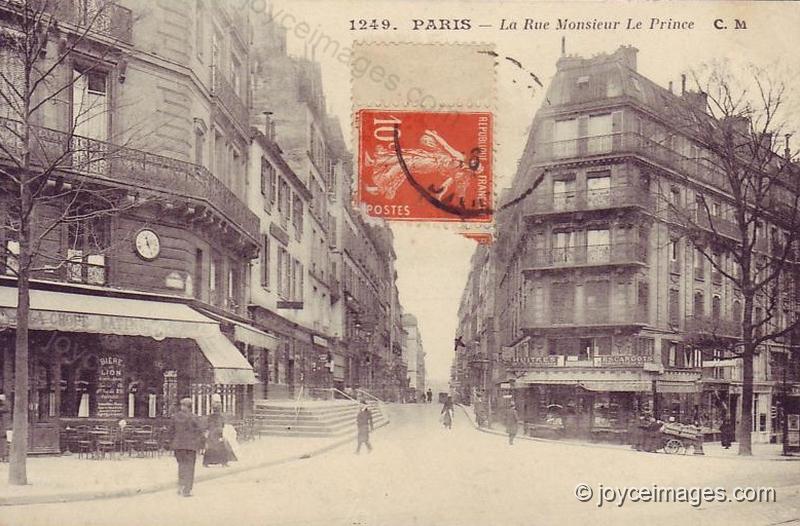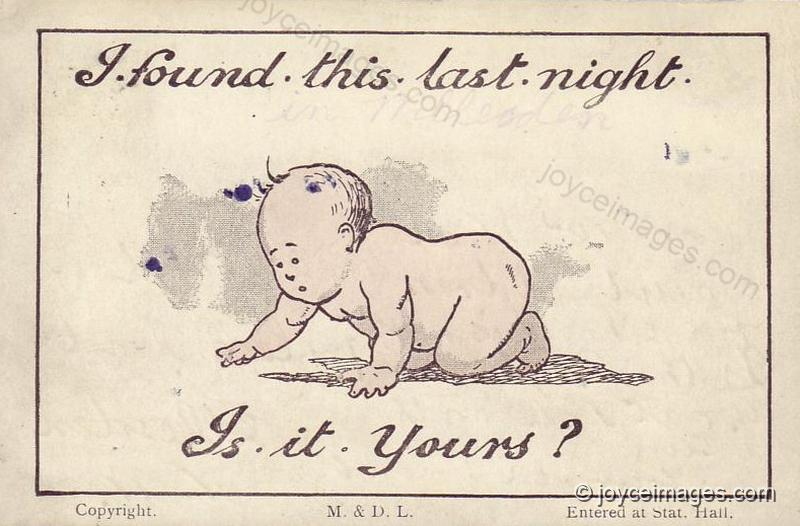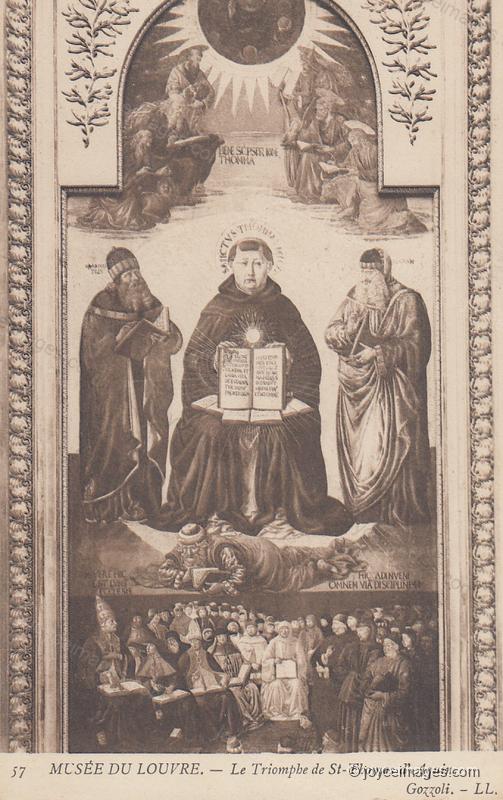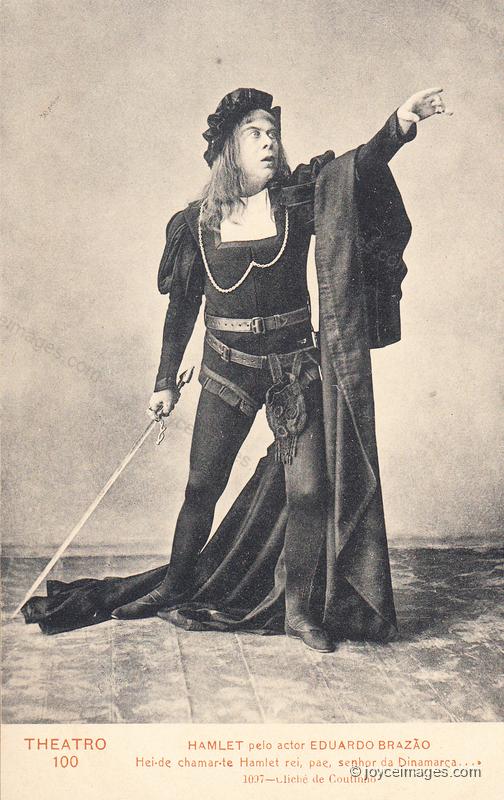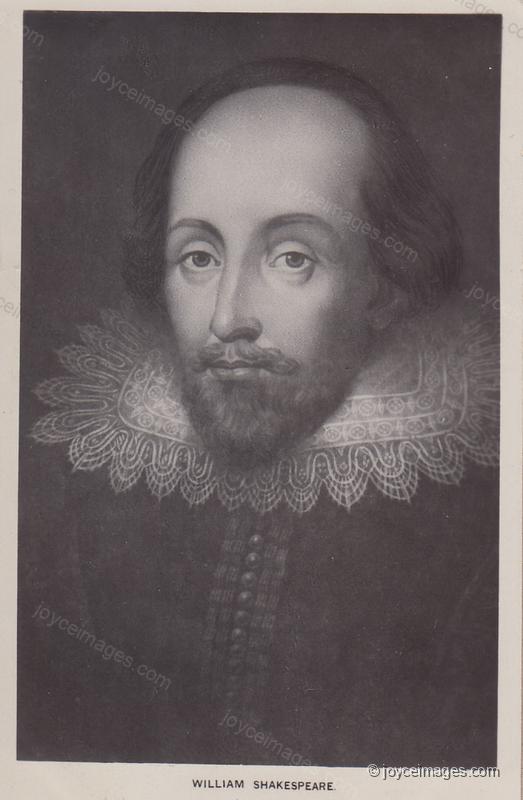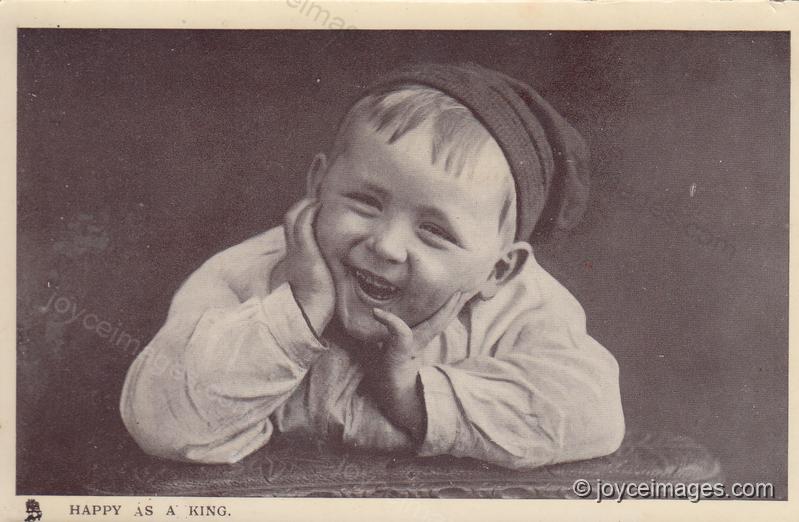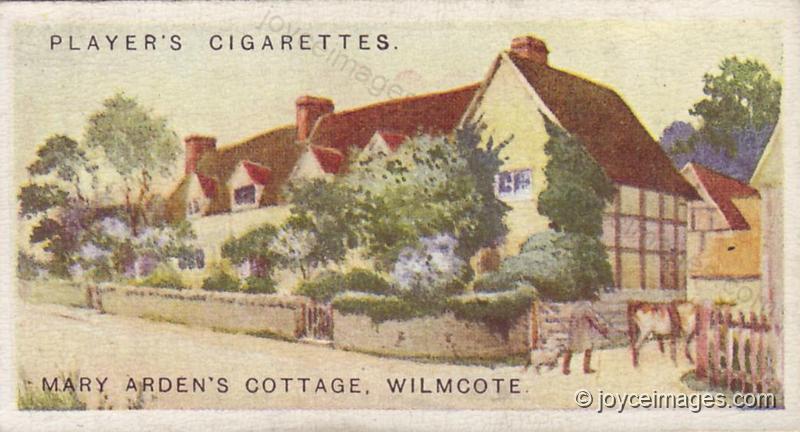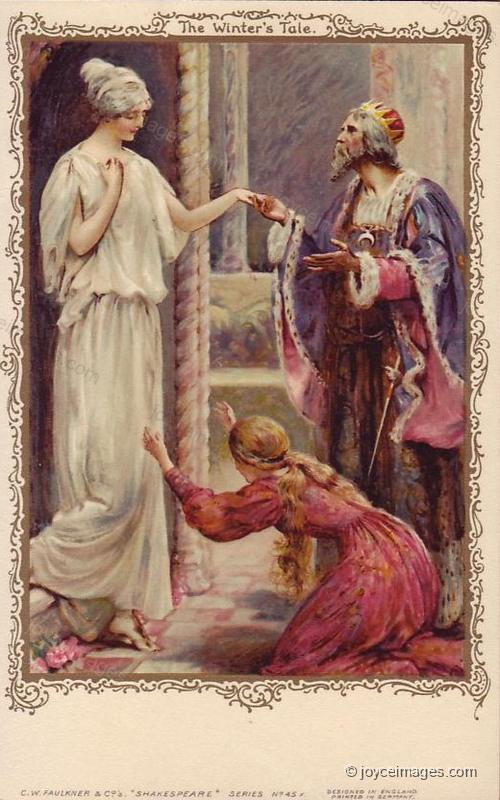"nel mezzo del cammin di nostra vita, with fifty of experience, is the beardless undergraduate from Wittenberg then you must hold that his seventyyear old mother is the lustful queen. No. The corpse of John Shakespeare does not walk the night. From hour to hour it rots and rots. He rests, disarmed of fatherhood, having devised that mystical estate upon his son." (U9.831)
"Fatherhood, in the sense of conscious begetting, is unknown to man. It is a mystical estate, an apostolic succession, from only begetter to only begotten." (U9.837)
"On that mystery and not on the madonna which the cunning Italian intellect flung to the mob of Europe the church is founded and founded irremovably because founded, like the world, macro and microcosm, upon the void." (U9.839)
"Upon incertitude, upon unlikelihood. Amor matris, subjective and objective genitive, may be the only true thing in life." (U9.842)
"Who is the father of any son that any son should love him or he any son?
What the hell are you driving at?
I know. Shut up. Blast you! I have reasons.
Amplius. Adhuc. Iterum. Postea.
Are you condemned to do this?" (U9.844)
What the hell are you driving at?
I know. Shut up. Blast you! I have reasons.
Amplius. Adhuc. Iterum. Postea.
Are you condemned to do this?" (U9.844)
"— They are sundered by a bodily shame so steadfast that the criminal annals of the world, stained with all other incests and bestialities,, hardly record its breach. Sons with mothers, sires with daughters, lesbic sisters, loves that dare not speak their name, nephews with grandmothers, jailbirds with keyholes, queens with prize bulls. The son unborn mars beauty: born, he brings pain, divides affection, increases care. He is a new male: his growth is his father's decline, his youth his father's envy, his friend his father's enemy." (U9.850)
"- What links them in nature? An instant of blind rut.
Am I father? If I were?
Shrunken uncertain hand.
— Sabellius, the African, subtlest heresiarch of all the beasts of the field, held that the Father was Himself His Own Son." (U9.859)
Am I father? If I were?
Shrunken uncertain hand.
— Sabellius, the African, subtlest heresiarch of all the beasts of the field, held that the Father was Himself His Own Son." (U9.859)
"The bulldog of Aquin, with whom no word shall be impossible, refutes him. Well: if the father who has not a son be not a father can the son who has not a father be a son?" (U9.863)
"When Rutlandbaconsouthamptonshakespeare or another poet of the same name in the comedy of errors wrote Hamlet" (U9.865)
"he was not the father of his own son merely but, being no more a son, he was and felt himself the father of all his race, the father of his own grandfather, the father of his unborn grandson who, by the same token, never was born, for nature, as Mr Magee understands her, abhors perfection." (U9.867)
"Eglintoneyes, quick with pleasure, looked up shybrightly. Gladly glancing, a merry puritan, through the twisted eglantine.
Flatter. Rarely. But flatter.
— Himself his own father, Sonmulligan told himself. Wait. I am big with child. I have an unborn child in my brain. Pallas Athena! A play! The play's the thing! Let me parturiate!
He clasped his paunchbrow with both birthaiding hands." (U9.872)
Flatter. Rarely. But flatter.
— Himself his own father, Sonmulligan told himself. Wait. I am big with child. I have an unborn child in my brain. Pallas Athena! A play! The play's the thing! Let me parturiate!
He clasped his paunchbrow with both birthaiding hands." (U9.872)
"- As for his family, Stephen said, his mother's name lives in the forest of Arden. Her death brought from him the scene with Volumnia in Coriolanus. His boyson's death is the deathscene of young Arthur in King John. Hamlet, the black prince, is Hamnet Shakespeare." (U9.879)
"Who the girls in The Tempest, in Pericles, in Winter's Tale are we know. Who Cleopatra, fleshpot of Egypt, and Cressid and Venus are we may guess. But there is another member of his family who is recorded.
- The plot thickens, John Eglinton said.
The quaker librarian, quaking, tiptoed in, quake, his mask, quake, with haste, quake, quack.
Door closed. Cell. Day." (U9.882)
- The plot thickens, John Eglinton said.
The quaker librarian, quaking, tiptoed in, quake, his mask, quake, with haste, quake, quack.
Door closed. Cell. Day." (U9.882)
